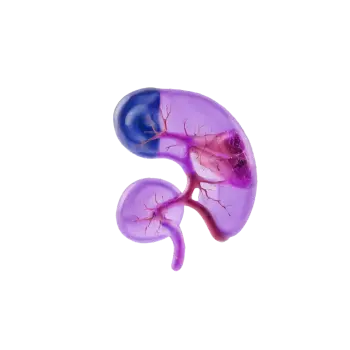Quick version
What is creatine and why is it used in training?
Creatine is a naturally occurring substance that is stored in your muscles and used to quickly produce energy in the form of ATP, mainly during short-term and intense physical activity. As a dietary supplement, creatine monohydrate is one of the most well-studied and documented supplements in sports and fitness.
Benefits of using creatine during exercise
Creatine has a wide range of documented benefits during physical activity. When using supplements, the following effects can occur:
- increased strength and power development
- faster muscle recovery
- larger muscle volume - through increased intracellular fluid and muscle mass in the long term
- improved performance during repeated short-term, high-intensity exercise such as sprinting, weightlifting.
Studies show that creatine supplements can provide a 5–20% performance improvement in explosive moments. For both elite athletes and exercisers, it can provide a clear boost in strength, muscle mass and training effect.
Are there any risks with creatine?
Creatine is considered a very safe supplement when used as recommended. A large number of studies have not shown any serious side effects in healthy individuals.
When side effects are reported, the most commonly reported effects are as follows:
- Slight weight gain due to fluid retention in the muscles
- Stomach discomfort such as gas or bloating, which is especially seen at high doses without division.
Creatine increases the creatinine value in the blood (a marker of kidney function), but this is not dangerous in itself and does not reflect impaired kidney function in healthy people. For people with known kidney disease or risk factors, it may be wise to consult a doctor before starting.
Dosage and loading
The most common way is to take creatine as a loading dose of 20 g/day, divided into 4 doses, for 4–5 days. After that, you continue with a maintenance dose of 3–5 g/day. Alternatively, you can take 3–5 g daily from the start and reach the same effect level after about 3 weeks without a loading phase.
How do you keep track of your values?
If you take creatine supplements and want to make sure you don't get unwanted effects, you can test:
- S-Creatine: May increase with supplementation, but is not dangerous in itself.
- Cystatin C (CysC): A more reliable measure of kidney function that is not affected by creatine.
- eGFR (estimated GFR): Assesses the kidneys' filtration capacity.
- Kidney Check: Contains all of the above markers and provides a comprehensive picture of kidney function.
If you take creatine supplements, it may be a good idea to keep track of your fluid retention, stomach tolerance, weight gain and muscle recovery.

























